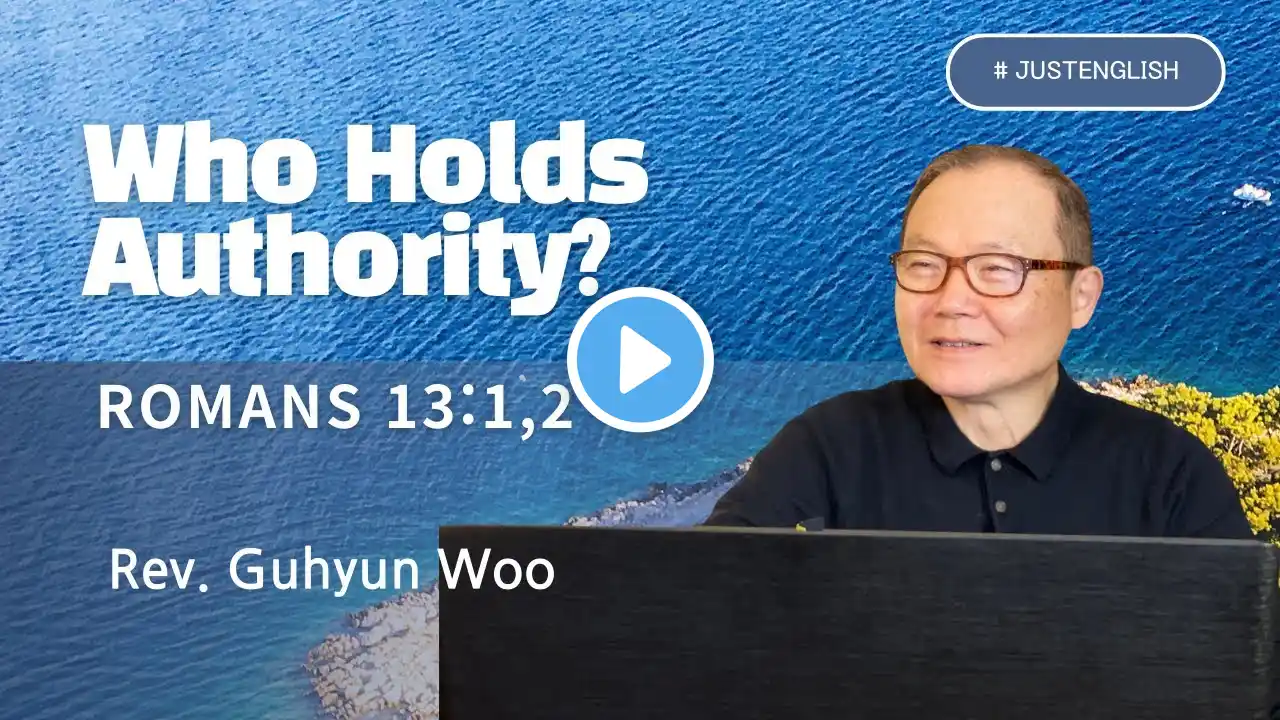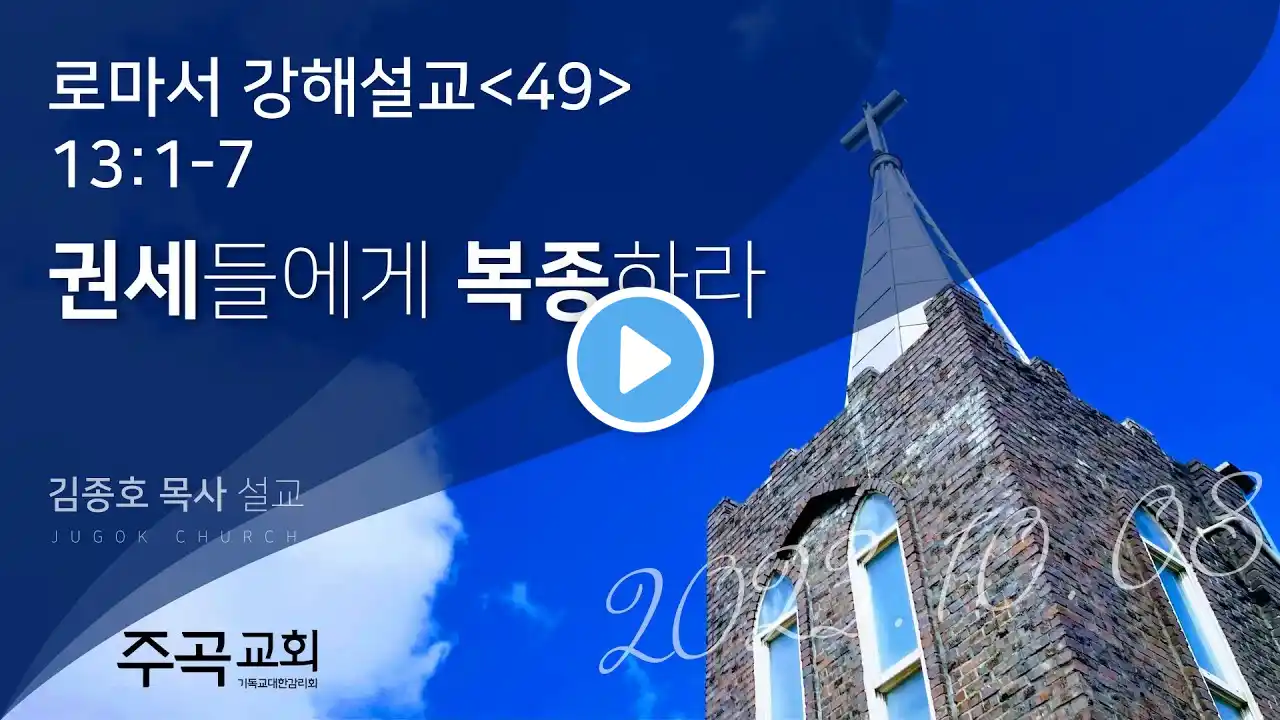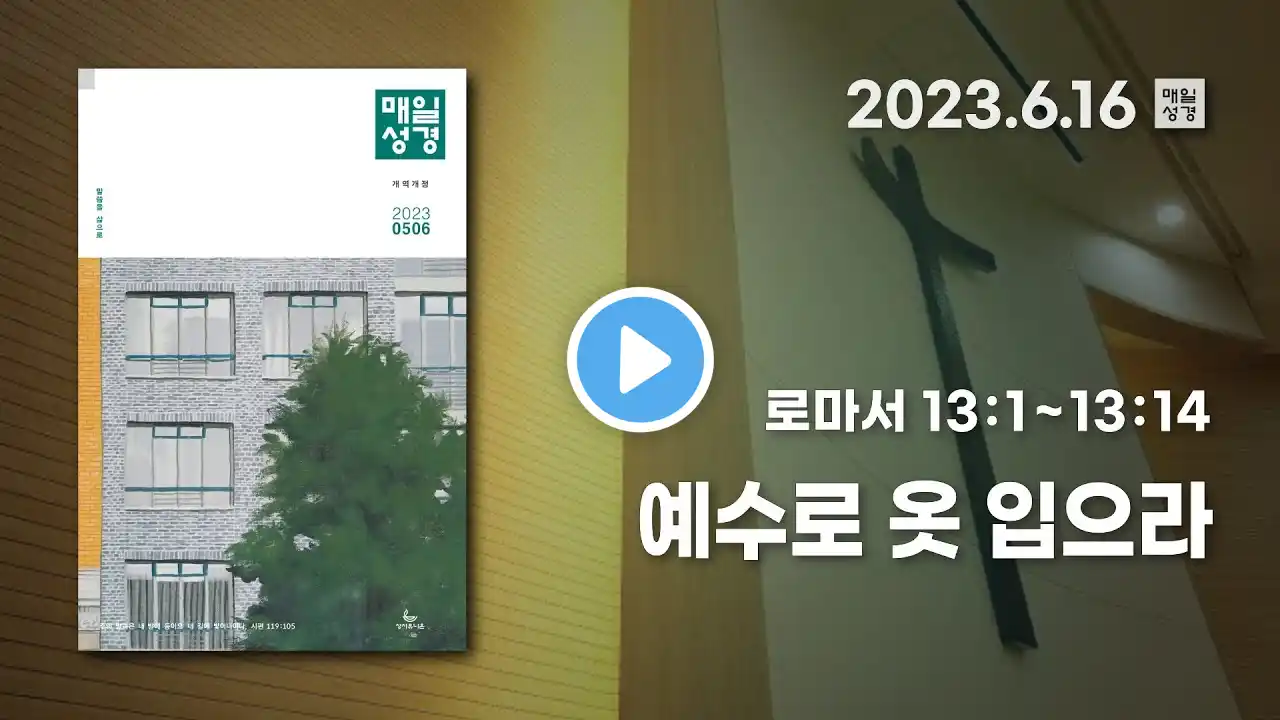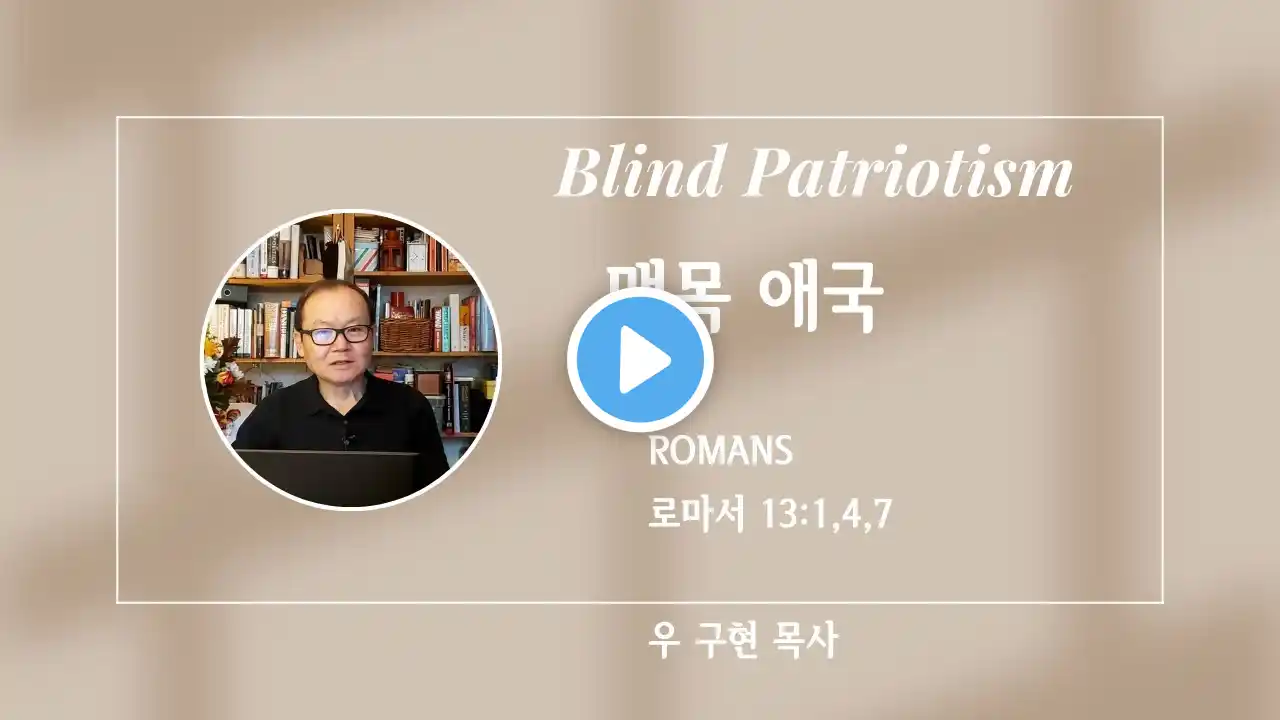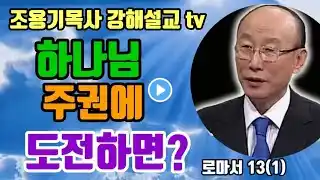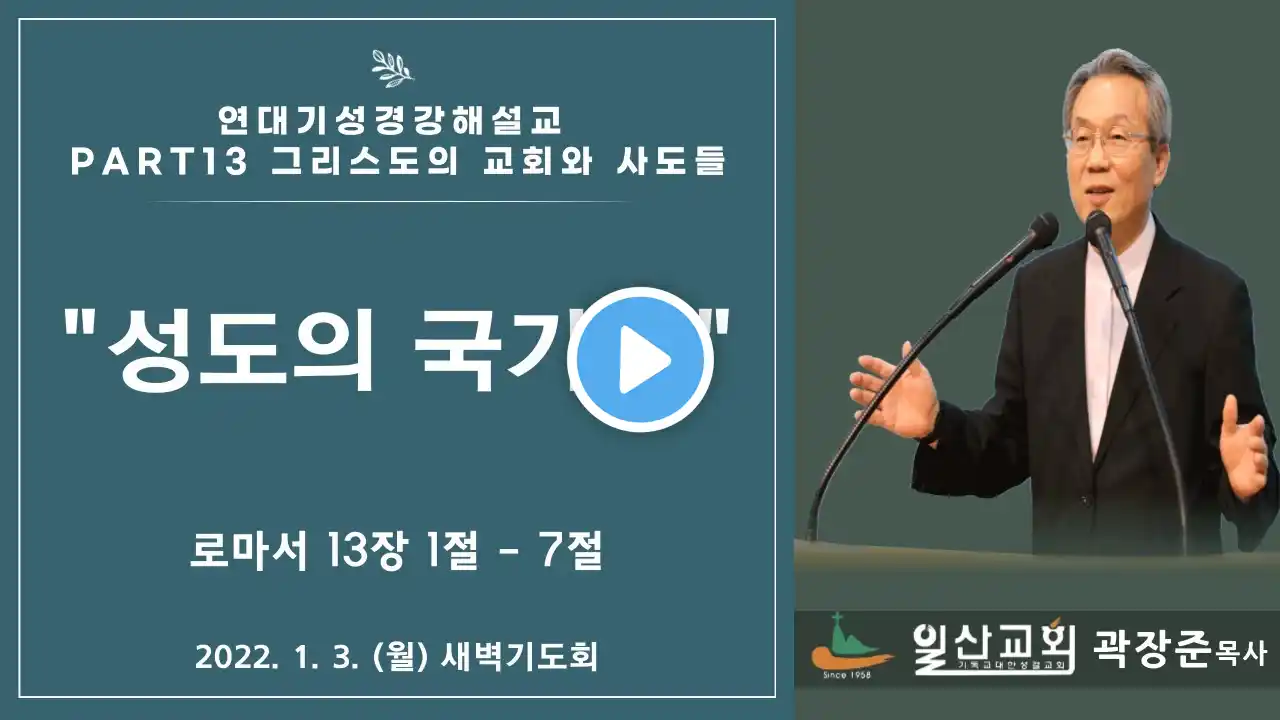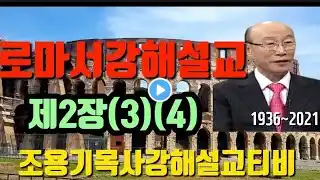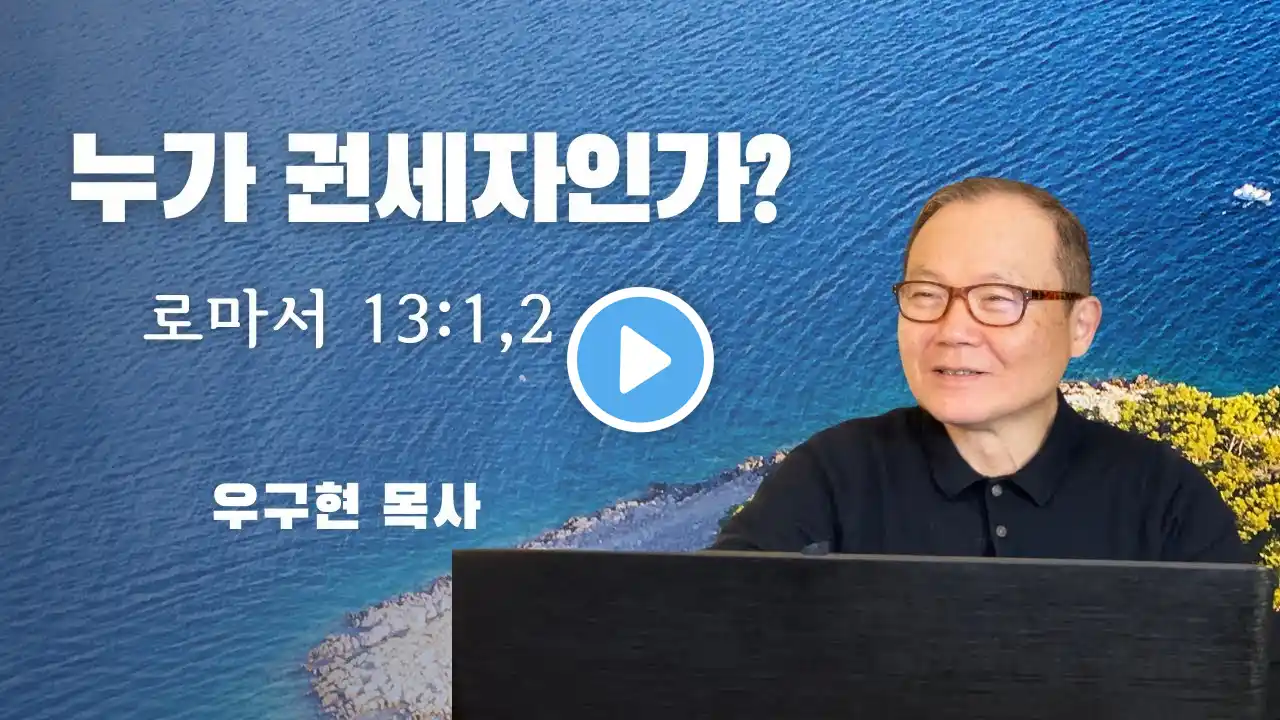
로마서 13:1,2 | 누가 권세자인가? | 강해설교 | 런던서울교회 | 우구현목사
2024 12 22 대강절 넷째 주 [누가 권세자인가?] 로마서 13:1,2 찬송가 103 로마서 13: 1 각 사람은 위에 있는 권세들에게 복종하라 권세는 하나님으로부터 나지 않음이 없나니 모든 권세는 다 하나님께서 정하신 바라 2 그러므로 권세를 거스르는 자는 하나님의 명을 거스름이니 거스르는 자들은 심판을 자취하리라 [Who Holds Authority? 누가 권세자인가?] Martyn Lloyd-Jones once stated: "As I had to point out when dealing with our relationship to the state, if you happen to be under a tyrant or a dictator—under someone who abuses his office and, instead of maintaining law and order, becomes a supreme law-breaker—then you are entitled to take part in a rebellion to change your government. The same principle exactly works here. If the state to which you belong has not declared war for a just cause, then the whole position is different." 1) This quote brings us to the central issue of authority. Verse 1 of Scripture mentions: "Which God has established," pointing to God's common grace in human governments, which can be used for either good or evil purposes. 2) But the question arises: Who ultimately holds authority? Is it the government or the people who elect representatives and leaders? In a democracy, as we all know, the authority fundamentally rests with the people. When we consider Verse 2, we ask, Who rebels against authority? Is it Yoon Suk-yeol or the representatives of the majority of South Korean citizens? Authority in Churches and Beyond: The authority of the people often clashes with that of a dictator, and this tension also extends to religious institutions. In South Korea, some pastors may interpret Verse 1 selectively, in a way that protects their own authority within the church. They fear that losing this perception of authority would weaken their ability to minister to their congregants. This distortion, rooted in self-preservation, creates challenges when conveying Scriptural truths on governance. Reflecting on History: I am reminded of the funerals of prominent figures in South Korean history. In the summer of 1965, the funeral of Rhee Syng-man, South Korea's first president, drew massive crowds of mourners. A similar scene unfolded in the summer of 1974 for Yuk Young-soo, the wife of dictator Park Chung-hee. These funerals resembled the royal procession of Emperor Gojong’s funeral, with countless weeping citizens paying their respects 3. 3. 1919. On August 15, 1945, the long-awaited day of Korea's liberation from Japanese rule, not everyone rejoiced. Pro-Japanese elites, under the U.S. Military Government, retained their influence, rising to become an aristocratic-like group with power and wealth. This class, which includes figures like Yoon Suk-yeol, has shaped South Korea, perpetuating the notion of authority as derived from kings, nobility, and elite groups. However, we live in a democracy. This reality often seems to be denied, both in government and in churches. Many pastors continue to adhere to an outdated, hierarchical view of authority that aligns more with past notions of aristocracy than with democratic principles. The Legacy of Authority in South Korea: After Korea’s liberation, the remnants of the pro-Japanese elites merged with anti-communism and the modern "New Right" movement. These factions continue to pursue authoritarian control over East Asia and beyond—much like the dreams of Japanese leaders such as Emperor Meiji or Ito Hirobumi, whose vision was disrupted by independence fighters like Ahn Jung-geun. Guhyun Woo —----------------------- 1)D. Martyn Lloyd-Jones, Romans, Exposition of Chapter 13 Life in Two Kingdoms (Edinburgh: The Banner of Truth Trust, 2002), p. 69. 2)Wayne Grudem, Systematic Theology (Leicester: Inter- Varsity Press, 1994), p. 661. Prayer Almighty God, I earnestly ask you for such deeper fellowship of the Holy Spirit, who speaks in the blessed Scriptures, that when I open them, I may perceive his mind in what I read, and immediately hear in them his voice to myself. I ask you for a quicker understanding in spiritual things, for more desire to understand, a fuller perception of your promise in the church, that I may become teachable, and may love that by which you will teach me. Amen Henry Wotherpoon, quoted in Jonathan Gibson, O Come, O Come, Emmanuel (Wheaton: Crossway, 2023), p. 84. #LondonSeoulChurch #Rev_GuhyunWoo #WooGuhyun #런던서울교회 #우구현목사
